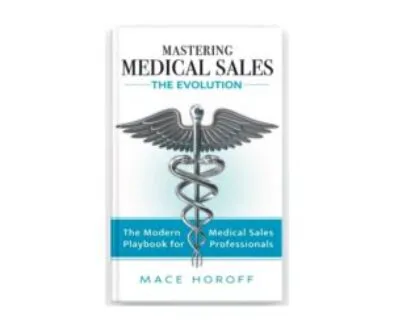How the “Miracle on the Hudson” Can Help Medical Sales Professionals to Prepare for the Imminent Healthcare Changes
President Obama’s new healthcare plan has some people cheering, some people angry, and a myriad of predictions as to how it will affect America’s future. Since no one has a crystal ball, it’s hard to say for sure how people who sell to healthcare will be affected, but we do know that there will be changes.
If you sell products and services to the medical community, you may be wondering if your business will be affected under the new plan, and if so, how. While the changes will be phased in over the next four years, now is the time to prepare for the possible implications.
When President Bill Clinton took office in 1993, there was much ado about the sweeping healthcare changes that he and Hillary planned to implement. I was selling surgical implants at that time, and despite all of the fear that surfaced in the industry as to the possible effects of the Clinton healthcare plan, I ignored the noise and sold what was in my bag.
Over time, customers’ fears of the anticipated changes began to impact me. Stable business that I had enjoyed for years was suddenly threatened. Hospitals attempted to treat the specialized implants that I sold as commodity items. I was called into the offices of several materials managers who somberly told me that the hospital had capped what it would pay for my products. They told me that they expected lower reimbursement for all procedures and that my company needed to take its share of the hit. It appeared that hospitals were getting together and conspiring to drive better pricing by agreeing on the same price limits (interestingly, if manufacturers do this, it’s called price-fixing and it’s a felony!).
Initially I was shocked and feared losing business and earning less through lower commissions. My company’s management told me not to worry, since the surgeons who used the products were in control when it came to selecting implants for their patients. I always enjoyed good relationships with my customers and they appeared to be happy with my products and service. My business seemed secure, so I relaxed and tried to put the situation out of my mind. That was a mistake.
Three of the hospitals in my territory advised its surgeons to vote for two vendors from a list of companies who were willing to meet the hospital’s price demands. My company wasn’t even a choice since it never agreed to the hospitals’ price limits. The surgeons who used my products tried to fight it, but the hospitals stood firm and encouraged the surgeons to practice at other institutions if they wanted to use implants other than the ones chosen. Despite doing what was considered to be a first-class job with my customers, I was locked out of the implant business at three of my highest volume accounts for two years.
Let me remind you that the events I just described were initiated with a health care plan that failed to pass! The Obama health care plan is now a reality and while I don’t have the prescient abilities of Carnac the Magnificent, I know that the new health care plan and changing economic conditions will affect the way that medical sales professionals conduct business in the future – we just don’t know yet what all of the changes will be.
What can you, as a medical sales professional, do to get ready for the unknown?
Prepare like a pilot!
Chesley “Sully” Sullenberger was hailed as a national hero after he guided U.S. Airways Flight 1549 to a successful “water landing” on the Hudson River January 15, 2009. Did Sully know that he was going to be handling an emergency that day? Of course not, but he was prepared to respond because part of being a pilot is knowing how to handle emergencies. Interestingly, airline pilots train for a host of situations, although a complete loss of power over Manhattan with a water-ditching as the best option is not something they specifically prepare for. The reason everything worked out is because he and his co-pilot, Jeff Skiles, kept control of the situation, explored their options, made a split-second decision as to which option was best, and executed flawlessly. Everyone on Flight 1549 survived in “The Miracle on the Hudson,” and Sully’s name became a household word.
Most people in business, and in life for that matter, don’t worry about how they will respond to an untoward event until it’s staring them in the face. I’m not suggesting that we all walk around expecting the sky to fall, but some advance consideration and planning sure makes dealing with a crisis easier if it should occur. What if a customer calls you and presents you with a critical situation that you must address at that moment? Are you going to say the right thing? Do you know how to buy time to consider your options or are you willing to just roll the dice and spew out the first words that come to mind? The “I’ll worry about it when it happens” attitude doesn’t work for pilots and it’s not a good plan for medical sales professionals. The new healthcare plan may throw some things your way that you have never dealt with before. Will you be prepared?
Many medical sales representatives won’t give the Obama Healthcare plan more than a passing thought until it hits them in the wallet. They tend not to think about the what-ifs and consider situations only as they arise. Pilots don’t have that luxury, and quite frankly, neither do you. When an emergency occurs, pilots have only seconds to consider their options and respond immediately or their chances for a successful outcome decreases exponentially. Training for emergencies requires that pilots decide how they will respond to any possible situation in advance and then they practice each response over and over until it’s second nature.
What does this have to do with you–the medical sales professional?
As I said, we don’t know exactly how the Obama healthcare plan will affect your business, but you need to have a strategy for each possibility, plan your contingencies, and be able to respond instantly and appropriately. Please don’t misunderstand what I’m saying – I’m not suggesting that you should sacrifice selling time to worry about the future. Sell what you have today with gusto and never sacrifice your selling time to worry about gloom and doom, but have a plan for dealing with any threats to your sales.
Here are some things we may see more of in the future:
-Mandates to reduce pricing to “keep the business”
-A push towards lower-cost, less “deluxe” products, i.e. commoditization of products
-Move towards one vendor (prime vendor) in more product categories
-Bundling your products with other products at a reduced price
-Reduced insurance reimbursement for your product and the associated trickle-down effect
-Hospitals overruling doctors’ product selections
-National and regional buying contracts
-Hospitals changing from owned inventory to more consignment inventory
-Hospitals refusing to pay shipping, handling, and stat courier fees (i.e. you or your company pay)
-Any possible changes to the way healthcare buys or uses your product in the future
The possibilities I mention here are not new, as the industry has been dealing with them for years. Chances are, you have already addressed some or all of these issues at one time or another. The question is, how will you respond in the future? Do you know what to say if the hospital CFO suddenly calls you into his office and asks what you can do to help the hospital align with the new healthcare mandates? What questions will you ask? How will you deal with tight deadlines to respond? Has your company disseminated information as to how the sales force should respond to any business challenges or opportunities in the future that stem from the new healthcare plan? Have you memorized and do you practice those responses so you won’t be stammering and stuttering as your customer awaits your response?
It’s important to remember that the new healthcare plan will bring not only new challenges, but also new opportunities. More people will have reimbursed healthcare in America than ever before. That means that there will be expanding markets for many medical products and services, including hopefully, yours. Those companies and sales representatives who are best prepared to immediately respond to all of the new opportunities and challenges will own the lion’s share of the business in their industry segment.
The Miracle on the Hudson wasn’t really a miracle. It was the personification of preparation, execution, and yes – luck. Even though the flight crew had never practiced that specific emergency, their training kicked-in and everyone lived. Decide now what you will do when the emergency horn sounds in your territory. Practice for every possible scenario like a pilot. You will be rewarded with a better chance to not only survive the Obama healthcare changes, but to grow your business like never before.


